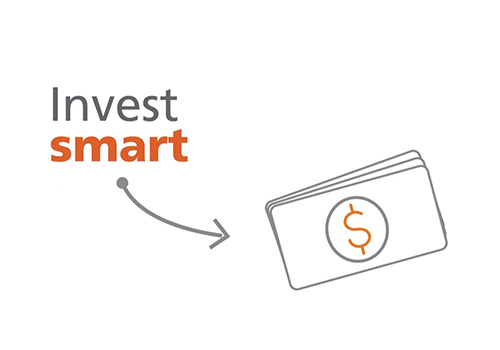Annual Contribution Limits
There are so many qualified medical expenses that your HSA can help you cover. For more than just deductibles and copays, you can use your funds to pay for dental, vision, chiropractic care, acupuncture and more. Get income tax-free contributions and income tax-free withdrawals for qualified medical expenses. Plus, your money grows income tax-free.
You are responsible for monitoring the amount deposited into your HSA each calendar year. Keep in mind that if your employer contributes funds, those also count toward the maximum. If you exceed the maximum contribution limit, there is a penalty imposed by the IRS. Sign in to your account online to download the Health Savings Account (HSA) Excess Contribution Removal Form to request an excess contribution refund or a correction to a contribution.
2022 HSA contribution limits:
- An individual with coverage under a qualifying high-deductible health plan (deductible not less than $1,400) can contribute up to $3,650 — up $50 from 2021 — for the year to their HSA. The maximum out-of-pocket is capped at $7,050.
- An individual with family coverage under a qualifying high-deductible health plan (deductible not less than $2,800) can contribute up to $7,300 — up $100 from 2021 — for the year. The maximum out-of-pocket is capped at $14,100.
2023 HSA contribution limits:
- An individual with coverage under a qualifying high-deductible health plan (deductible not less than $1,500) can contribute up to $3,850 — up $200 from 2022 — for the year to their HSA. The maximum out-of-pocket is capped at $7,500.
- An individual with family coverage under a qualifying high-deductible health plan (deductible not less than $3,000) can contribute up to $7,750 — up $450 from 2022 — for the year. The maximum out-of-pocket is capped at $15,000.
Catch-up contribution
Once you turn 55, you can contribute an additional $1,000 each year to your HSA, called a catch-up contribution. If you and your spouse are both over the age of 55, you can each contribute an additional $1,000. Your spouse will just need to open their own HSA for their additional portion. Click here to sign in and make a catch up contribution today.
Qualified medical expenses
For a $100 pair of eyeglasses, you could pay the $100 out of pocket or you could pay with your HSA. By paying with your HSA you could potentially save an average of $30 because of the tax advantages with your HSA.
It's like a 30% coupon for qualified medical expenses.*
Since the money you contribute to your HSA is generally income tax-free, you save 30% on qualified medical expenses that you pay for with your HSA.
Contribute to your HSA now and sail into retirement
Most retired Americans will need more money to pay for their health care needs than their insurance coverage will provide. Total projected lifetime healthcare costs for a healthy 65-year-old couple retiring in 2021 are expected to be $662,156**. Sign in to your online account today to make a contribution.
As you're planning for the future, your HSA can ease your mind and prepare you for retirement by saving money income tax-free. Keep in mind that you’ll always pay taxes when you withdraw funds from a 401K. But if you use HSA funds for qualified medical expenses, it’s generally 100% income tax-free.
It's important to max out your HSA now, because once you enroll in Medicare, you can no longer contribute to your HSA — but you can still use it. Your HSA comes in handy because there are certain things that traditional Medicare doesn't cover, such as hearing aids, vision and dental, among many other costs.
Did you know?
After turning 65, you can use your HSA funds for non-qualified expenses, like a boat or an exotic vacation. You’ll pay ordinary income tax on those funds, but the 20% tax penalty no longer applies.
Related resources

Options to Invest Your HSA

Qualified medical expense tool

Contribution limits
*Assuming 25% tax bracket and 5% state tax rate in a tax-exempt HSA state. Results and amounts will vary depending on your particular circumstances.
**HealthView Services. 2021 retirement health care costs data report
Self-directed mutual fund investment options are made available through the services of an independent investment advisor, or your plan sponsor. Discretionary advisory services are provided by Betterment LLC, an SEC-registered investment adviser, with associated brokerage transactions provided by Betterment Securities, Member FINRA/SIPC. For details and disclosures visit betterment.com. The Schwab Health Savings Brokerage Account is offered to certain account holders through Charles Schwab & Co., Inc., Member FINRA/SIPC. For details and disclosures, visit schwab.com. Brokerage services are offered to certain accountholders through TD Ameritrade, Inc., Member FDIC/SIPC and a subsidiary of The Charles Schwab Corporation. For details and disclosures, visit tdameritrade.com.
Orders are accepted to effect transactions in securities only as an accommodation to HSA owners. Optum Financial and its subsidiaries are not broker-dealer or registered investment advisors and do not provide investment advice or research concerning securities, make recommendations concerning securities, or otherwise solicit securities transactions.
Health savings accounts (HSAs) are individual accounts offered through Optum Bank®, Member FDIC, or ConnectYourCare, LLC, an IRS-Designated Non-Bank Custodian of HSAs, each a subsidiary of Optum Financial, Inc. Neither Optum Financial, Inc. nor ConnectYourCare, LLC is a bank or an FDIC insured institution. HSAs are subject to eligibility requirements and restrictions on deposits and withdrawals to avoid IRS penalties. State taxes may apply. Fees may reduce earnings on account.
Flexible spending accounts (FSAs), dependent care assistance programs (DCAPs), health reimbursement arrangements (HRAs), Commuter and Parking Benefits, Tuition Assistance Plans, Adoption Assistance Plans, Surrogacy Assistance Plans, Wellness Benefits, and Lifestyle Accounts (collectively, “Employer-Sponsored Plans”) are administered on behalf of your plan sponsor by Optum Financial, Inc. or ConnectYourCare, LLC (collectively, "Optum Financial") and are subject to eligibility and restrictions. Employer-Sponsored Plans are not individually owned and amounts available under the Employer-Sponsored Plan are not FDIC insured. This communication is not intended as legal or tax advice. Federal and state laws and regulations are subject to change. Please contact a legal or tax professional for advice on eligibility, tax treatment, and restrictions. Please contact your plan administrator with questions about enrollment or plan restrictions.
Google Play and the Google Play logo are trademarks of Google LLC. Apple and the Apple logo are trademarks of Apple Inc., registered in the U.S. and other countries. App Store is a service mark of Apple Inc., registered in the U.S. and other countries.
The promotional code OPTFSA7, OPTHSA5 and OPTHRA7 cannot be applied to previously placed orders, and cannot be combined with other promotional codes. Additionally, the code cannot be used for prescription drugs or virtual care visits. Promotional codes are not transferable or redeemable for cash or credit. To apply a promotional code you must enter it prior to completing the order.
Free and expedited shipping offers do not apply to shipping outside of the contiguous United States. Additional shipping restrictions may apply.
The Optum Store is an affiliate of the UnitedHealth Group family of companies.
Your employer sponsored plan may exclude reimbursement for certain categories of items. Check your plan document and summary plan description or contact your benefits department for specific coverage details.
© 2022 Optum, Inc. All rights reserved
Investments are not FDIC insured, are not bank issued or guaranteed by Optum Financial or its subsidiaries, including Optum Bank, and are subject to risk including fluctuations in value and the possible loss of the principal amount invested.
